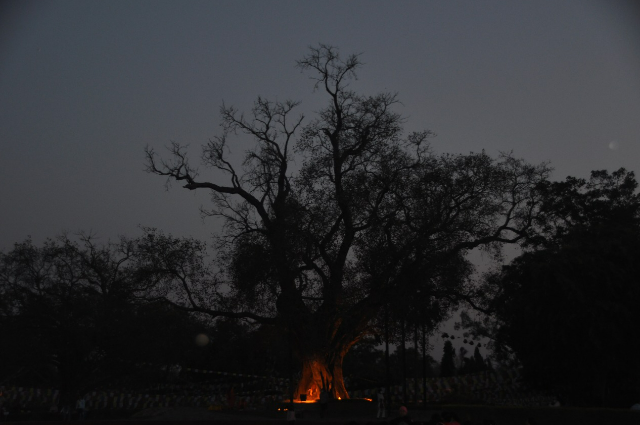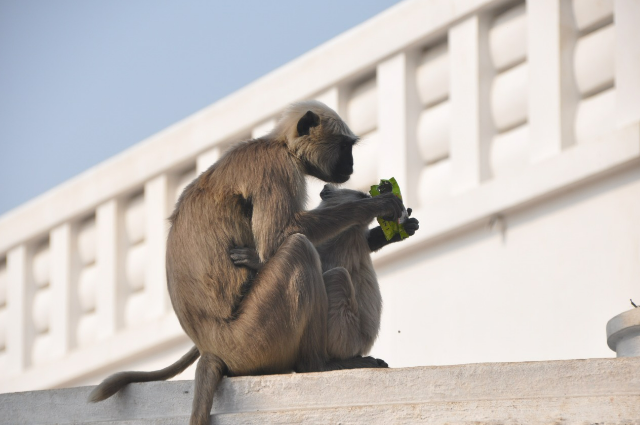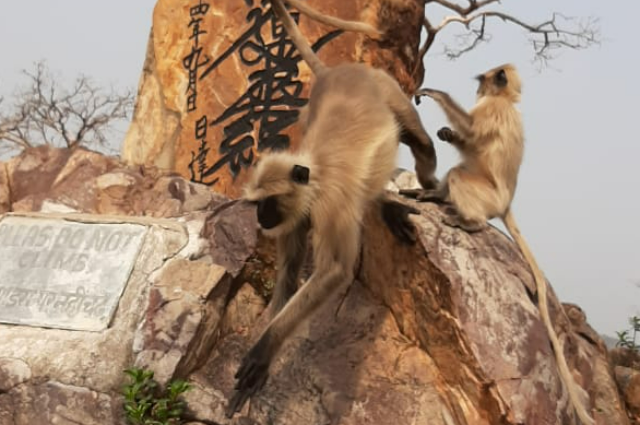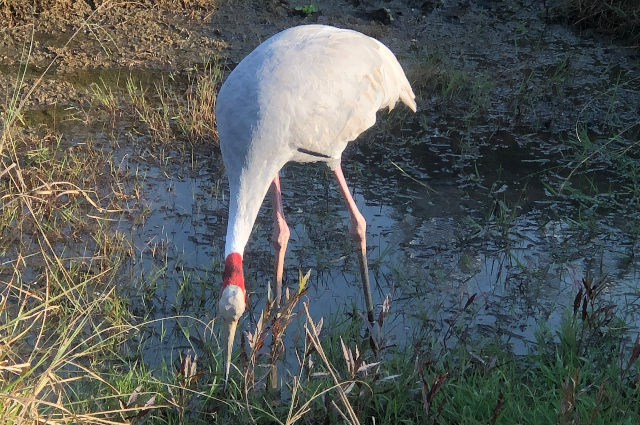Global Warming
The snow-clad mountains hold significant reserves of freshwater that feeds our rivers that traverse through the land to meet the sea at its journey end. Climate Change is making negative impacts causing glaciers to recede due to the increase of average annual global temperature. Our future is hanging on a thin line unless we act today! The rapid melting of polar ice and glaciers are adding extra volume of water to the ocean and making them an important threat factor for low lying areas of the continents and oceanic islands. The frequent flash floods, changes in monsoon climate regimes, unprecedented draughts, famines and flooding, extreme cyclones, strong winds and gushes, norwester, tornados, tsunamis are becoming increasingly common weather events across the globe. The great divide between the Global North and Global South in the form of repeated contradicting conflicts between developed (1st world countries) and developing and under developed (3rd world countries) nations are further accelerating the damages inflicted by Climate Change.

We are pouring water on the top while setting fire at the base of our future prospects on this planet. If we continue to do so, the dark nights are not too far away from us.
Photo credit: Saikat Kumar Basu
Geopolitical crises
The deepening economic crises, political instability, and jeopardized democracy has become the hallmark of three South Asian nation; namely: Sri Lanka, Pakistan and Maldives. Similar situations are showing up into the frontlines of three other South Asian nations, namely Afghanistan (being overrun by terrorist groups), Nepal (deep political fractions among major political parties resulting in dear ability and poor economic developments) and Bangladesh (being dominated by religious and political turmoil as well as the external pressure of a massive number of Rohingya refugees). India has been a little better as a much bigger nation; but, the writings on the wall are not too good for either. These are not only negatively impacting the human populations; but has long-term effect on their environment, ecosystems, forests and biodiversity.

Photo credit: Saikat Kumar Basu
Huge dependencies on other economies for support and repeated burrowing of money from various agencies instead of looking for increasing income has turned into a chronic disease for South Asia. Economic slow down following the COVID-19 pandemic as well as the poor rate of employment together with constant struggle for power among major and minor political parties are making India vulnerable. In short, the whole of South Asia are moving through a period of crises. Governments and opposition parties across this heavily populated region need to understand that it is time to keep their differences behind and work together for holding the nations together, for establishing law and order, uplifting democracy and democratic values and working towards building their economy.

Photo credit: Saikat Kumar Basu
The high level of corruption, nepotism, dynastic rules, mismanagement, and lack of accountability is taking a heavy toll on the people of South Asia. The SAARC has been a complete failure and a pan-regional cooperation is still waiting to take a shape. It is time to wake up and work towards preventing further degradation of the economy, politics, and administration; else South Asia is moving towards serious destabilization in the not-so-distant future. If the geopolitical situation of this region of South Asia deteriorates so will be the local ecosystems and environment as is currently showing up in various international media reports.

Photo credit: Saikat Kumar Basu
Marginalized human populations in South and South East Asia; as also in war-ravaged and economically backward countries of Asia, Africa, Latin America, Eastern Europe, and old republics of erstwhile the Soviet Union in Europe and Asia are facing very serious existential crises. As a consequence, local people are becoming more and more dependent on the scanty natural resources of the forests for their livelihood and survival. The increased pressure on natural forest resources in the form of major and minor forest products are being plundered depleting the forests at an accelerated pace. This has been an important factor behind the depletion of local wildlife and biodiversity.

Photo credit: Saikat Kumar Basu
Conservation Politics
Recently it has been a sensational news nationwide that the Gujarat state government is setting up a tiger reserve in the state to drag kore tourists to the state. Where is Gujarat getting the tigers from? Another Indian state? No, the Central Zoo Authority has approved a pair of breeding tiger to the state to set up the population. The same state government does not allow any relocation of over populated Indian lions from the Gir Sanctuary to other states to avoid the danger of any future catastrophic effect just to keep the tag that the Gir is the only natural habitat on the planet for a special tourism promotion factor. Today they are looking to establish tiger safari possibly by getting tigers from other areas of India. Is this not an irony? This same attitude of the Gujarat state government prevented introduction of Asiatic cheetahs to India, since the Iranian government requested a breeding pair of Asiatic lions. The Gujarat government refused! The Iranian government hence rejected their decision to hand in a breeding pair of Asiatic cheetahs to India. This negative politics one day could result in the sad demise of Asiatic lions due to any unexpected natural (fire, disease, earthquake) or anthropogenic (destruction of forest) factor.

Photo credit: Saikat Kumar Basu
It is important to increase the range of the Asiatic lions from the overpopulated Gir. When will they understand! Our selfish politicians fail to realize that their small negative political gestures has long-term impacts on our society and nature. By concentrating a vulnerable population in an over crowded sanctuary they are doing a criminal offence by making them exposed to diseases through over crowding, in fights among various lion prides resulting in serious injuries abs even deaths, forcing the animals to get out of Gir and explore human settlements around making both animals and humans face to face with deleterious effects, reducing the prey base by introducing intense competitions among lion herds turning them aggressive, hungry, stressed and malnourished impacting population health parameters, chances of rapid spread of communicable diseases, pushing towards human-animal conflicts and possibilities population crash through natural and anthropogenic factors like wild fires, livestock to wildlife communicable diseases, poaching and wildlife trafficking, genetic bottlenecks, and attacks on rural communities and their livestock due to poor prey bases.
Although the above picture is symbolic. But it is trying to express the concern of concentrating too many animals in one habitat threatening their mere existence in the not-so-distant future. The Asiatic lions are asking for a second home for their survival. Photo credit: Saikat Kumar Basu
Environmental stress
Anthropogenic impacts has overturned the natural cycles of our planet through indiscriminate increase in the release of harmful and toxic pollutants to our environment. This has been a root cause for the unprecedented rise in environmental stress. But in our modern lifestyle, we have to accept that stress is inevitable in our life. An individual needs constant mindfulness to remain in equanimity. Even if equanimity becomes a lifestyle, it needs regular practice. The mind tends to deviate. Hence we need to aim at achieving the capability to see things as they are and still remain in peace. We need to curb our selfish desires to care for our planet for our own long-term sustenance and for securing the future of our next generations on the planet. The ruthless plunder of natural resources is making our planet vulnerable to extreme Climate change. We have to remember what Mahatma Gandhi suggested a long time back by saying that ‘Earth provides enough to satisfy every man’s needs; but not everyman’s greed’.

Due to our extreme greed and selfishness, we are destroying our lives, forests, and biodiversity for small materialistic gains. But these small changes cumulate to give shape to a broader issue. Environmental stress has been a significant factor impacting our lives now. We need to rethink how we wish to live now healthy or unhealthy?
Photo credit: Saikat Kumar Basu
